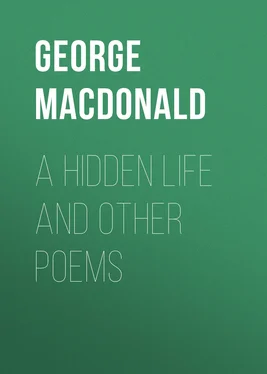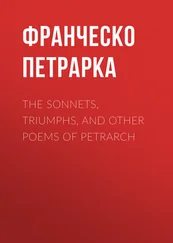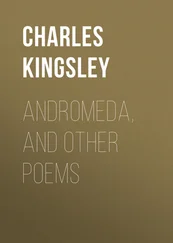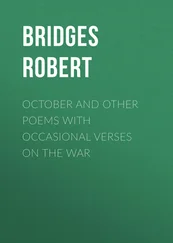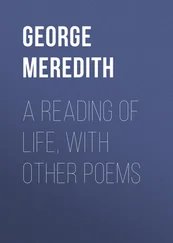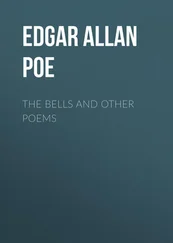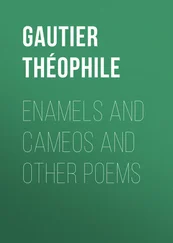George MacDonald - A Hidden Life and Other Poems
Здесь есть возможность читать онлайн «George MacDonald - A Hidden Life and Other Poems» — ознакомительный отрывок электронной книги совершенно бесплатно, а после прочтения отрывка купить полную версию. В некоторых случаях можно слушать аудио, скачать через торрент в формате fb2 и присутствует краткое содержание. Жанр: foreign_prose, literature_19, foreign_antique, на английском языке. Описание произведения, (предисловие) а так же отзывы посетителей доступны на портале библиотеки ЛибКат.
- Название:A Hidden Life and Other Poems
- Автор:
- Жанр:
- Год:неизвестен
- ISBN:нет данных
- Рейтинг книги:4 / 5. Голосов: 1
-
Избранное:Добавить в избранное
- Отзывы:
-
Ваша оценка:
- 80
- 1
- 2
- 3
- 4
- 5
A Hidden Life and Other Poems: краткое содержание, описание и аннотация
Предлагаем к чтению аннотацию, описание, краткое содержание или предисловие (зависит от того, что написал сам автор книги «A Hidden Life and Other Poems»). Если вы не нашли необходимую информацию о книге — напишите в комментариях, мы постараемся отыскать её.
A Hidden Life and Other Poems — читать онлайн ознакомительный отрывок
Ниже представлен текст книги, разбитый по страницам. Система сохранения места последней прочитанной страницы, позволяет с удобством читать онлайн бесплатно книгу «A Hidden Life and Other Poems», без необходимости каждый раз заново искать на чём Вы остановились. Поставьте закладку, и сможете в любой момент перейти на страницу, на которой закончили чтение.
Интервал:
Закладка:
George MacDonald
A Hidden Life and Other Poems
Ma poi ch' i' fui appiè d' un colle giunto,
Là ove terminava quella valle,
Che m' avea di paura il cuor compunto;
Guarda' in alto, e vidi le sue spalle
Vestite già de' raggi del pianeta,
Che mena dritto altrui per ogni calle.
1864.
Take of the first fruits, Father, of thy care,
Wrapped in the fresh leaves of my gratitude
Late waked for early gifts ill understood;
Claiming in all my harvests rightful share,
Whether with song that mounts the joyful air
I praise my God; or, in yet deeper mood,
Sit dumb because I know a speechless good,
Needing no voice, but all the soul for prayer.
Thou hast been faithful to my highest need;
And I, thy debtor, ever, evermore,
Shall never feel the grateful burden sore.
Yet most I thank thee, not for any deed,
But for the sense thy living self did breed
That fatherhood is at the great world's core.
All childhood, reverence clothed thee, undefined,
As for some being of another race;
Ah! not with it departing—grown apace
As years have brought me manhood's loftier mind
Able to see thy human life behind—
The same hid heart, the same revealing face—
My own dim contest settling into grace
Of sorrow, strife, and victory combined.
So I beheld my God, in childhood's morn,
A mist, a darkness, great, and far apart,
Moveless and dim—I scarce could say Thou art :
My manhood came, of joy and sadness born—
Full soon the misty dark, asunder torn,
Revealed man's glory, God's great human heart.
Algiers, April, 1857.
POEMS
A HIDDEN LIFE
Proudly the youth, by manhood sudden crowned,
Went walking by his horses to the plough,
For the first time that morn. No soldier gay
Feels at his side the throb of the gold hilt
(Knowing the blue blade hides within its sheath,
As lightning in the cloud) with more delight,
When first he belts it on, than he that day
Heard still the clank of the plough-chains against
The horses' harnessed sides, as to the field
They went to make it fruitful. O'er the hill
The sun looked down, baptizing him for toil.
A farmer's son he was, and grandson too;
Yea, his great-grandsire had possessed these fields.
Tradition said they had been tilled by men
Who bore the name long centuries ago,
And married wives, and reared a stalwart race,
And died, and went where all had followed them,
Save one old man, his daughter, and the youth
Who ploughs in pride, nor ever doubts his toil;
And death is far from him this sunny morn.
Why should we think of death when life is high?
The earth laughs all the day, and sleeps all night.
Earth, give us food, and, after that, a grave;
For both are good, each better in its time.
The youth knew little; but he read old tales
Of Scotland's warriors, till his blood ran swift
As charging knights upon their death career.
And then he chanted old tunes, till the blood
Was charmed back into its fountain-well,
And tears arose instead. And Robert's songs,
Which ever flow in noises like his name,
Rose from him in the fields beside the kine,
And met the sky-lark's rain from out the clouds.
As yet he sang only as sing the birds,
From gladness simply, or, he knew not why.
The earth was fair—he knew not it was fair;
And he so glad—he knew not he was glad:
He walked as in a twilight of the sense,
Which this one day shall turn to tender light.
For, ere the sun had cleared the feathery tops
Of the fir-thicket on the eastward hill,
His horses leaned and laboured. His great hands
Held both the reins and plough-stilts: he was proud;
Proud with a ploughman's pride; nobler, may be,
Than statesman's, ay, or poet's pride sometimes,
For little praise would come that he ploughed well,
And yet he did it well; proud of his work,
And not of what would follow. With sure eye,
He saw the horses keep the arrow-track;
He saw the swift share cut the measured sod;
He saw the furrow folding to the right,
Ready with nimble foot to aid at need.
And there the slain sod lay, patient for grain,
Turning its secrets upward to the sun,
And hiding in a grave green sun-born grass,
And daisies clipped in carmine: all must die,
That others live, and they arise again.
Then when the sun had clomb to his decline,
And seemed to rest, before his slow descent,
Upon the keystone of his airy bridge,
They rested likewise, half-tired man and horse,
And homeward went for food and courage new;
Whereby refreshed, they turned again to toil,
And lived in labour all the afternoon.
Till, in the gloaming, once again the plough
Lay like a stranded bark upon the lea;
And home with hanging neck the horses went,
Walking beside their master, force by will.
Then through the deepening shades a vision came.
It was a lady mounted on a horse,
A slender girl upon a mighty steed,
That bore her with the pride horses must feel
When they submit to women. Home she went,
Alone, or else the groom lagged far behind.
But, as she passed, some faithless belt gave way;
The saddle slipped, the horse stopped, and the girl
Stood on her feet, still holding fast the reins.
Three paces bore him bounding to her side;
Her radiant beauty almost fixed him there;
But with main force, as one that gripes with fear,
He threw the fascination off, and saw
The work before him. Soon his hand and knife
Replaced the saddle firmer than before
Upon the gentle horse; and then he turned
To mount the maiden. But bewilderment
A moment lasted; for he knew not how,
With stirrup-hand and steady arm, to throne,
Elastic, on her steed, the ascending maid:
A moment only; for while yet she thanked,
Nor yet had time to teach her further will,
Around her waist he put his brawny hands,
That almost zoned her round; and like a child
Lifting her high, he set her on the horse;
Whence like a risen moon she smiled on him,
Nor turned away, although a radiant blush
Shone in her cheek, and shadowed in her eyes.
But he was never sure if from her heart
Or from the rosy sunset came the flush.
Again she thanked him, while again he stood
Bewildered in her beauty. Not a word
Answered her words that flowed, folded in tones
Round which dissolving lambent music played,
Like dropping water in a silver cup;
Till, round the shoulder of the neighbouring hill,
Sudden she disappeared. And he awoke,
And called himself hard names, and turned and went
After his horses, bending too his head.
Ah God! when Beauty passes by the door,
Although she ne'er came in, the house grows bare.
Shut, shut the door; there's nothing in the house.
Why seems it always that it should be ours?
A secret lies behind which Thou dost know,
And I can partly guess.
But think not then,
The holder of the plough had many sighs
Upon his bed that night; or other dreams
Than pleasant rose upon his view in sleep,
Within the magic crystal of the soul;
Nor that the airy castles of his brain
Had less foundation than the air admits.
But read my simple tale, scarce worth the name;
And answer, if he gained not from the fair
Beauty's best gift; and proved her not, in sooth,
An angel vision from a higher world.
Интервал:
Закладка:
Похожие книги на «A Hidden Life and Other Poems»
Представляем Вашему вниманию похожие книги на «A Hidden Life and Other Poems» списком для выбора. Мы отобрали схожую по названию и смыслу литературу в надежде предоставить читателям больше вариантов отыскать новые, интересные, ещё непрочитанные произведения.
Обсуждение, отзывы о книге «A Hidden Life and Other Poems» и просто собственные мнения читателей. Оставьте ваши комментарии, напишите, что Вы думаете о произведении, его смысле или главных героях. Укажите что конкретно понравилось, а что нет, и почему Вы так считаете.
